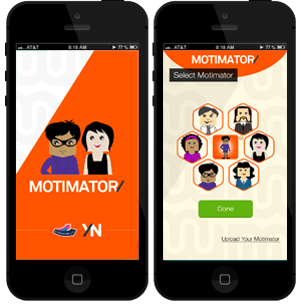Work stress
Counting down the seconds until 5pm? Fantasies of throwing the laptop out of the window? You may be suffering from work-related stress. With work becoming increasingly intense and all-consuming, it’s no surprise that many people are struggling with their mental health as a result. The Mix talks you through how to cope with work stress.

What is work related stress?
In a 2020 survey, it was reported that 79% of adults in the UK commonly suffer from work-related stress. This is a significant 20% jump from the 2018 statistics. But somehow stress is something that’s often overlooked within our society.
Stress is the reaction people have to excessive pressures or demands. For example, you may find it difficult to cope with tasks, responsibilities or other types of job related pressures. You might even get anxious trying to meet such demands. The reason that this is so important to talk about is that it isn’t just bad for your work, it could also be affecting your health.
What causes work stress?
Work stress may be caused or amplified by a number of factors including:
- Bad relations with other work colleagues.
- Long and/or irregular hours.
- Too little work – or too much.
- An increased workload.
- Repetitive work/boredom and lack of job satisfaction.
- Working alone.
- Job insecurity.
- Job or organisational change.
- Low pay.
- Jobs with heavy emotional demands.
- Bullying or harassment (if you’re struggling with this, click here).
- Poor working environments. This includes excessive noise, the presence of dangerous materials, overcrowding, poor facilities, or extreme temperatures or humidity.
- The ability for work to constantly contact you. It can feel like you’ll never escape the anxiety and pressure, even when you’re off the clock.
- External pressures such as financial worries or family problems.
Work related stress symptoms
Some common work related stress symptoms include:
- Difficulty getting to sleep or difficulty waking up in the morning.
- Constant fatigue.
- Forgetfulness.
- Aches and pains for no apparent reason.
- Poor appetite.
- Social withdrawal.
- No desire to do anything outside of work.
- Increased anxiety and irritability.
- Increased heart rate.
- Migraines/headaches.
- Blurred vision.
- Dizziness.
Everyone has off days but when it becomes a pattern, it’s time to take action. Especially if you’ve noticed three or more of these work related stress symptoms and you’ve experienced them for some weeks. If you think you may be suffering from workplace stress it is worth visiting your doctor (GP). They’ll be able to give you some concrete medical advice. Possibly even a diagnosis or treatment. That way you can rule out other possible causes of your symptoms.
What are the long-term health implications of work stress?
Highly-strung people are at increased risk for higher blood pressure. When stress-levels hit boiling point, sufferers are also at a higher risk of death than their more chilled out colleagues. They are also prone to heart disease, colitis (inflammation of the bowels), thyroid disorders and ulcers. Sound like it’s about time to make that GP appointment yet?
How to deal with work stress
If you’re suffering from work-related stress, let your line manager know. Your employer has a legal obligation to help reduce any stressful situations at work. If you’re struggling to cope it’s always better to ask for help than to soldier on alone. Remember, you don’t have to reach your breaking point just to appear strong. There’s always support available to help manage stress.
If you can’t talk to your manager – for example if you think talking to them will increase your stress levels – speak to your human resources department or another senior staff member. Many companies even have an occupational health team to deal with this kind of thing. Especially if management standards are high. In the meantime, you should read our article on how to deal with a bully boss if the thought of a conversation with them is worrying.
How to calm down if you’re suffering from work stress
Taking steps to deal with stress is easier said than done, but it’s certainly worth it. Try some of these suggestions rather than just hoping it’ll go away:
- Try to make time for yourself to wind down. For example relaxing in a warm bubble bath, listening to soothing music and shutting out the world for a while. No thinking about work allowed – Mix’s orders.
- Take time out of your day to exercise. Regular and frequent exercise is a good way to reduce stress. Plus it’s great for mental health in general.
- Find time to pursue non-work activities such as hobbies and recreational activities. Some of our favourites include drawing, scrapbooking and horse-riding.
- Make sure you’re eating well. Skipping meals will just deplete your energy and leave you drained.
- Speak to your family and friends regularly. Make time to see your mates. It’s important for you to maintain a personal life that revolves around something other than work.
- Learn to say no. If you’re asked to take extra work on board, have the confidence to decline. Make your reasons clear and we’re sure your boss will understand.
- Take breaks at work. Don’t stay glued to the job. Stop working every hour and take a few minutes to shake the lull of the work-day off.
- Plan your work. Sit down and establish what needs to be done. If you have an excessive workload, try delegating and prioritising. This will help you to feel more relaxed about your pending tasks.
Dealing with problems at work? Check out the rest of The Mix’s work and study resources here.
Next Steps
- Chat about this subject on our Discussion Boards.
By Nishika Melwani
Updated on 29-Jan-2022
No featured article














